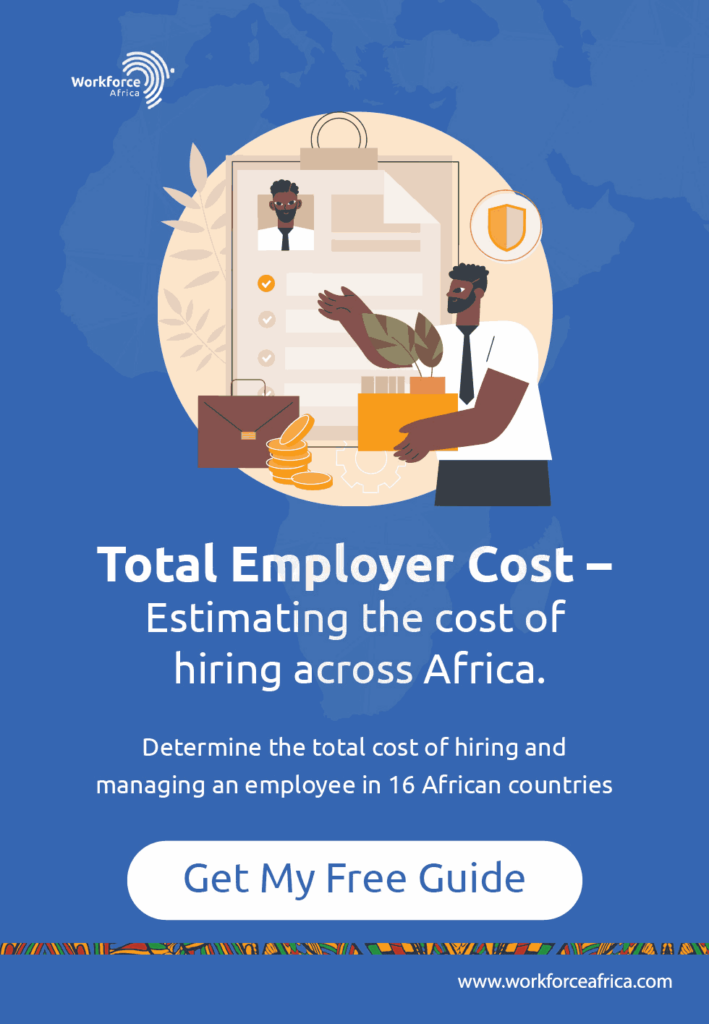

Multinationals hiring remote teams may face challenges regarding compliance with some local laws in Africa.
In this article, we'll explore the diversity of public holidays, statutory regulations in some African countries, and strategies for compliantly managing public holidays with remote teams.
Numerous cultural and religious holidays are observed globally, in addition to the various public holidays observed in each nation. Managing paid public holidays can be challenging for global businesses with remote teams across various cities and worldwide.
Multinationals must choose when and how employees working remotely must observe their holidays which is one of the “employee benefit packages” embedded in the labour laws across each country. Companies risk legal action if their public holidays policy does not comply with these regulations. Compliance is exceptionally complex and time-consuming if any organisation is building a global team, as it must obey the laws of several countries, which can have substantial differences.
A public holiday is usually a legally designated non-working day commemorating a momentous national event, such as the anniversary of a nation's independence. Other names for public holidays include "legal holidays," "bank holidays," and "national holidays." They can be festive or reflective, secular or religious.
The African Countries with the most public holiday days (19) per year are Madagascar and Uganda. Senegal, Tanzania, Morocco, and Uganda are among the countries that spend 5% of the calendar year observing public holidays. Those that observe the fewest public holidays annually are Sudan, Mauritania, Eritrea, and São Tomé and Príncipe, with eight days each.
Several days are commemorated as independence days in several African nations, including Cameroon, Libya, Western Sahara, and Somalia.
While some nations allow religious holidays to be observed for just one day, others enable religious festivals to be celebrated for multiple days. For instance, Eid is observed in Egypt over several days, whereas in Uganda and South Sudan, it lasts only one day. Similarly, South Sudan celebrates Christmas Eve as a holiday; South Africa celebrates a "day of goodwill" following Christmas instead of Christmas Eve. Nigeria and some African nations observe public holidays for 12 days.
In today's interconnected business landscape, multinationals operating in various African countries encounter many compliance challenges, particularly concerning public holiday laws. Understanding and adhering to these regulations is critical to fostering a harmonious relationship with local authorities while maintaining operational efficiency. Here are some statutory regulations in some African countries regarding public holidays:
Religious or memorial rest days are compensated as public holidays in Nigeria. 12 paid public holidays are statutory. An employee who works on public holidays is compensated with the money they would have made if they had worked that day.
Workers may work on public holidays and weekly rest days under exceptional circumstances. In these situations, they are entitled to payment for overtime following the employment contract collective bargaining agreement terms, or they may choose a day off within fourteen days in place of the work done.
Workers are permitted to take a day off on the day of the religious festival if the day designated as a public holiday is not the actual day of the festival.
Kenyans observe 13 public holidays. Many of the public holidays in Kenya honour both Christian and Muslim traditions. On public holidays, Kenyan employees are entitled to get their total wages. Employees who work on a public holiday are compensated 200% of their regular wage.
The country has twelve official public holidays. According to labour law, a work day after a public holiday on Sunday is also a public holiday.
On a public holiday, work is only permitted by agreement. If a person signed a contract committing them to work on a public holiday, they must honour that agreement. If there isn't a contract or other arrangement, the employee can decline to work that day.
Suppose a public holiday falls on a day an employee would generally work. In that case, the employer is required to pay (a) the wage that the employee would usually have received for work on that day if they do not work; (b) the amount that an employee who works on the public holiday would typically receive if they work: (i) at least double the amount mentioned in paragraph (a); or (ii) if it is greater, the amount mentioned the amount indicated in paragraph (a) plus the wage the worker received for the hours they worked that day.
When an employee works on a public holiday that they would not typically work, their employer must pay them an amount equal to (a) their regular daily wage plus (b) the amount they earned for the work they completed that day.
Mauritius observes 14 public holidays for 15 days because the New Year's holiday lasts two days. Workers on public holidays are entitled to double their regular pay for work done during normal business hours and triple their regular overtime pay worked on the holiday.
They celebrate 11 to 15 public holidays annually, including Islamic holidays celebrated worldwide.
For official holidays declared by the government, all employees are entitled to full pay, up to a maximum of 13 days annually. In addition to their regular payment for that day, an employee compelled to work on a national holiday shall be compensated with double their remuneration.
Countries in Africa have different labour laws when it comes to public holidays. For instance, some governments mandate that workers have paid time off on public holidays. Employees who work on these days can be eligible for overtime compensation or a day off instead of salary; some do not have national regulations requiring paid time off on public holidays. Nonetheless, it might still be accepted practice or specified in collective bargaining agreements or employment contracts. See some of the tips to navigate public holiday laws:
Establishing transparent and compliant HR rules is the first step in managing public holidays globally. This can imply that organisations have to develop particular policies for every nation and area where their team members are stationed. What is allowed in one country might not be in another. For this reason, it is advisable to seek professional assistance while navigating local laws.
Employers should specify:
Organisations must ensure the policies are accessible to the entire organisation. Incorporating these regulations into the onboarding process will help new hires know when and how to take public holidays when working remotely.
Overseeing many distinct holidays in several nations and areas can be a logistical challenge! For instance, some countries compensate for the workday after a bank holiday when it falls on a weekend, while others do not. It is impractical and diverts attention from more significant HR initiatives to Google in every case. Using a global holiday calendar can be very beneficial in this situation.
Once set up, HRIS platforms will automatically compute and apply international public holidays for you. Some even work with Google Calendar, saving remote teams from having to fill out separate leave applications.
The team will know when other employees are off when the global holidays calendar is prepared. They will be able to plan and handle prospective jobs efficiently.
International businesses must proactively support employees in striking a work-life balance and lowering stress levels. Observing public holidays fosters a work environment that values work-life balance and will enable workers to refuel.
Workers are more satisfied with their jobs, companies, relationships, and health when they feel encouraged to take time off. Employers undoubtedly contribute significantly to the effectiveness of paid time off.
Here are a few strategies to help your team members make the most of their public holidays and foster a pleasant vacation culture:
Adequate documentation, such as tracking processes, talent sharing, and meeting recording, is essential to asynchronous communication. By ensuring that a person's professional expertise is readily available even when they are not present, this documentation helps to free up workflow and minimizes bottlenecks. Team members are, therefore, far more at ease taking time off and unplugging completely.
It is helpful for coordinating work across time zones and allowing team members to take time off without compromising workflows.
Even though Christmas and New Year's holidays have historically been a big deal for many US- and European-based businesses, it's essential to note that not every member of the companies' worldwide employees will observe the holiday. Instead, it is best to urge them to recognize and commemorate various annual holidays and events, regardless of their ethnic or religious origins.
As it is difficult for HR departments or individuals to commemorate every day of cultural or religious importance, team members can take the initiative and observe the holidays that mean the most to them.
For instance, an organisation can set up a dedicated Slack channel for festivities and invite employees to post notes, images, or educational content related to their special holidays.
Alternatively, the team can urge employees to discuss their upcoming holidays at social catch-ups. Everyone will be able to participate in the celebrations and learn about one another's cultures in this way!
Consideration of local laws governing public holidays for remote staff is crucial. Different countries have varying entitlements to public holidays, necessitating a nuanced understanding of compliance. Open communication between employees and employers is critical to ensure understanding about the national holidays.
Additionally, embracing diverse cultural and religious holidays fosters an inclusive workplace culture. Promoting time off supports a better work-life equilibrium and contributes to a positive work environment, thereby enhancing overall productivity.
However, it can be challenging for international teams to manage public holidays, especially regarding compliance. We advise collaborating with a knowledgeable partner such as Workforce Africa for this reason.
Schedule a free consultation to learn more and start hiring top talent globally!